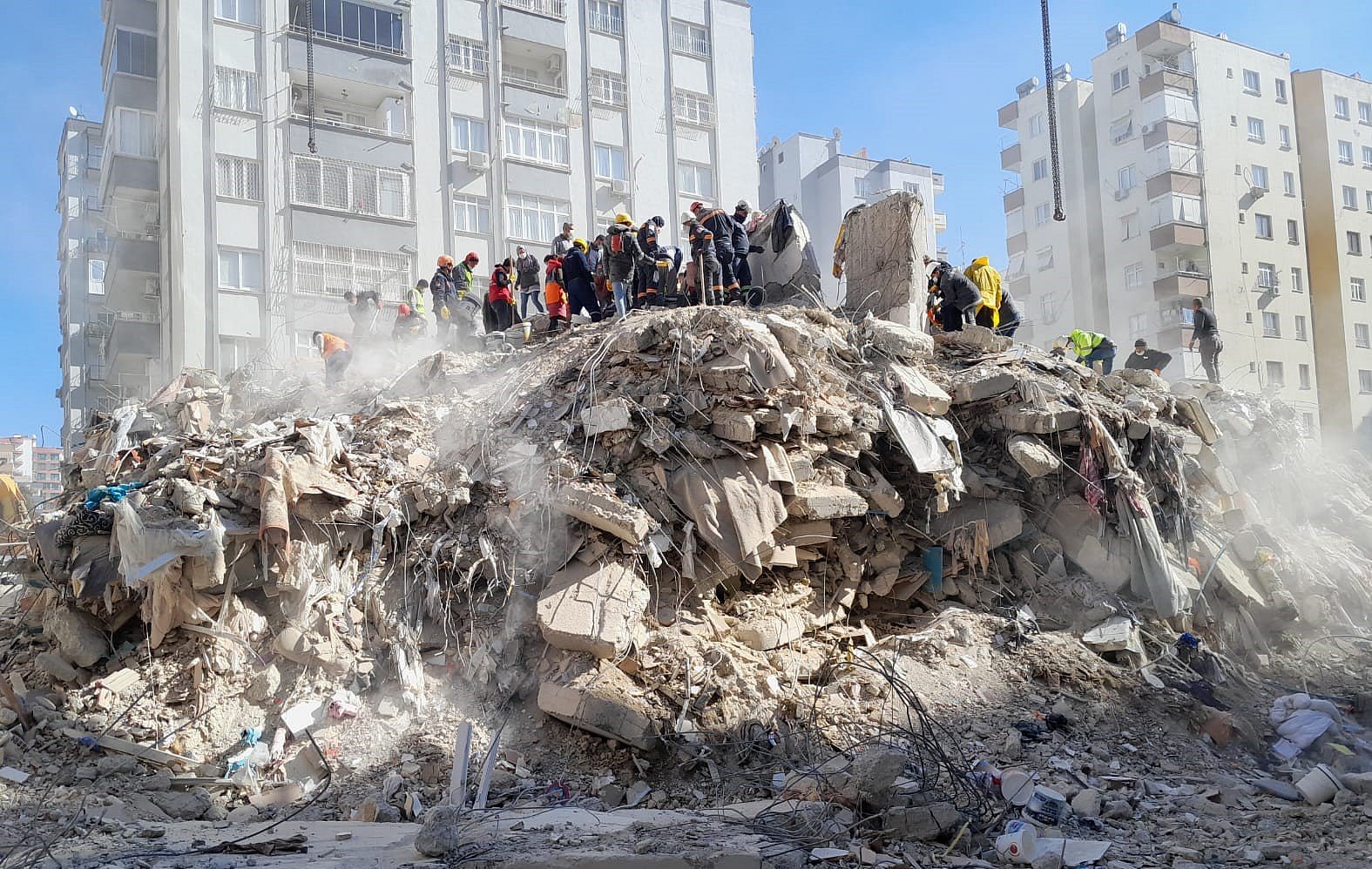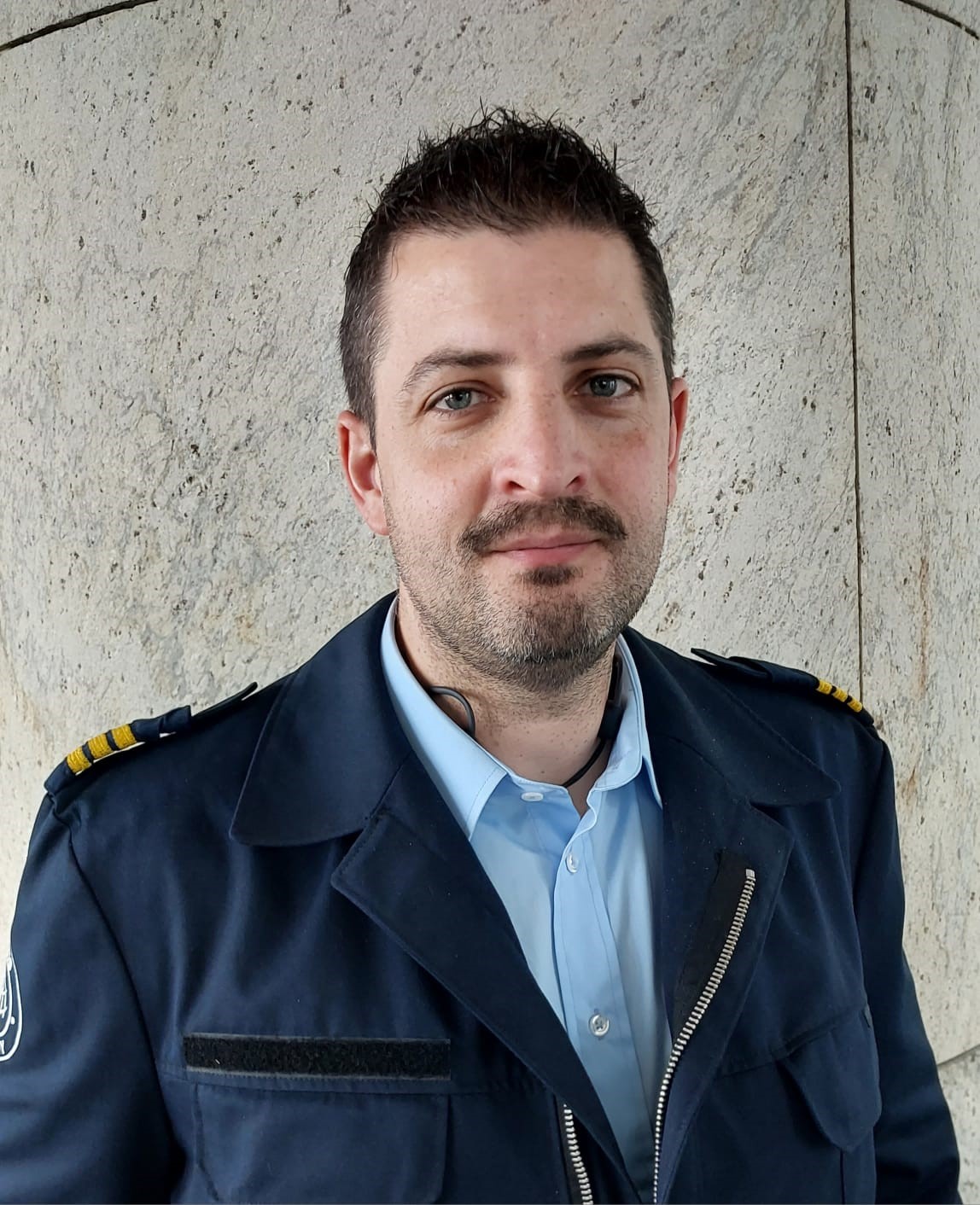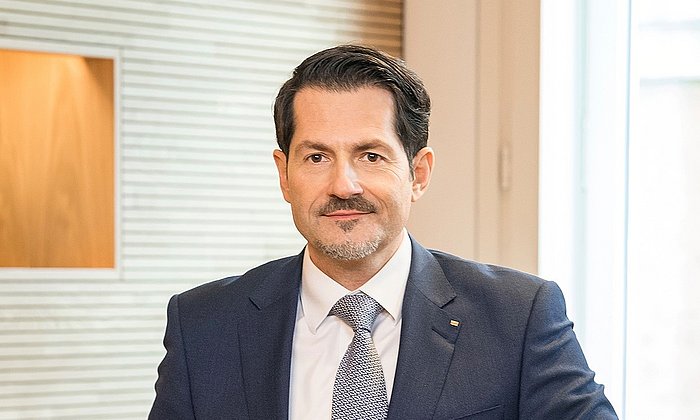Volunteer mission in Turkey's earthquake area
TUM firefighter Christian Pickal on disaster response mission

The 42-year-old career firefighter Pickal is part of a fact-finding team from the Bavarian volunteer aid organization NAVIS e.V., which specializes primarily on supplying drinking water and medical care to disaster areas. The NAVIS mobile water treatment systems can provide 250,000 liters of fresh drinking water every day. NAVIS also operates a field hospital with a daily capacity of 200 to 300 patients with surgical or internal medical emergencies.
Help for survivors
Pickal's task is to work together with three other volunteer NAVIS members on location to determine where the treatment systems can be set up and operated safely. "And that's a difficult task, given all the chaos in Hatay. We need a water source nearby and enough space for the tents and machines. But we're working together closely with the local authorities and have already found a suitable location." Rescue operations are underway everywhere in the city, which is almost as large as Munich. Cranes are moving rubble, search and rescue teams are digging through the ruins looking for victims.
Pickal would like to join in and offer hands-on help with the search himself, but he has a different assignment: He makes sure that it's possible to fulfill the survivor's essential needs. It may be a very long time before Hatay's infrastructure works properly again. Every two weeks NAVIS teams of around 20 members each – consisting primarily of medical and technical experts – will rotate to the disaster area.
Everyday work routine vs. disaster response
Since 2008, Pickal's everyday work routine as a firefighter in Garching has focused on the safety of the buildings, laboratories, technical equipment and, in particular, the people at the sprawling research complex. He is also responsible for training and continuing education of the TUM campus fire department. He and his colleagues are available around the clock to assist in case of accidents or fires, an enormously important job. But there's no comparison with the situation in a disaster area. "It brings you back down to earth, when you realize how small our problems really are."
Campus fire department chief Jürgen Wettlaufer supports the volunteer efforts: "This illustrates the high level of motivation among our colleagues in the campus fire department. To me, helping others is more than a professional daily mission, it's a personal philosophy."
More than anything, the reactions of the people he helps give Pickal strength. He has already been on NAVIS missions to Haiti, Pakistan and Kenya, among other places. "The people are so dependent on outside help and they're so grateful that we're there for them. These positive responses make it possible to bear the incredible suffering we see everywhere. We can really make a difference."
Technical University of Munich
Corporate Communications Center
- Ulrich Meyer
- presse@tum.de
- Teamwebsite

